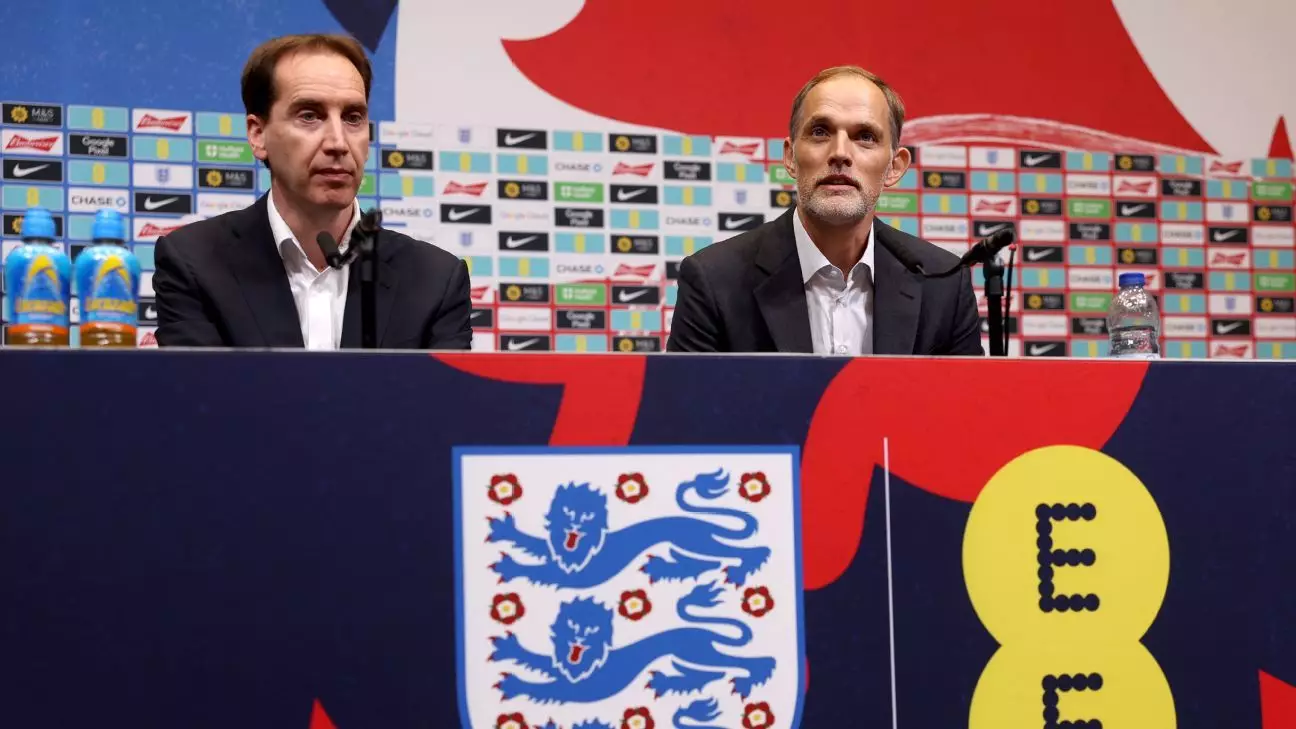The appointment of Thomas Tuchel as England’s head coach marks a significant shift in the nation’s football strategy. With the former Chelsea manager set to officially begin his role on January 1, Tuchel embarks on a crucial task: shaping his backroom staff to complement his vision. His choice to seek out familiar faces from his previous coaching stints indicates a focus on continuity and trust, essential elements in cultivating a successful team dynamic.
Sources have indicated that one of Tuchel’s first moves includes recruiting Anthony Barry, who previously served as an assistant coach alongside him at Chelsea. Barry’s transition from the Portuguese national team to England underlines Tuchel’s intent on building a cohesive unit where coaching philosophies are aligned. The synergy established through past collaborations could lead to a faster acclimatization to Tuchel’s style of play, vital in international settings where time is scarce. Additionally, the potential for acquiring James Melbourne, Chelsea’s head of performance analysis, emphasizes Tuchel’s desire for a strong analytical framework within the team. The informed decisions and insights brought by seasoned staff can significantly impact the team’s tactical preparations.
During his introductory press conference, Tuchel stressed the importance of maintaining a streamlined backroom team. By favoring a “small group” of highly skilled individuals, he aims to honor the existing talents within the Football Association (FA). This approach not only fosters a sense of respect for the FA staff but also enhances collaboration. Such dynamics can lead to better integration of ideas and strategies, creating an environment where innovation can flourish. Tuchel’s adaptive coaching style requires capable individuals who can contribute to a multifaceted playing strategy, balancing both defense and attack effectively.
Chelsea’s current management, led by Enzo Maresca, appears accommodating of these changes. Maresca’s openness to letting staff pursue new opportunities highlights a progressive attitude towards professional growth, demonstrating an understanding that coaching careers often evolve. This could set a precedent for a more fluid relationship between clubs and national teams in the future. With potential departures like Hilario, Chelsea is faced with the challenge of restructuring its own coaching staff while transitioning to a new era under Maresca.
Tuchel’s upcoming tenure as England’s coach brings anticipation. His capacity to blend seasoned assistants with emerging talents will greatly influence the team’s performance. As he prepares for upcoming international fixtures, fans and analysts alike will be eager to see how his strategic choices impact the squad dynamics. The collaboration between Tuchel and formerly established Chelsea staff could yield profitable results, reconnecting experience with innovative tactics. Only time will reveal if this calculated recruitment will lead England toward success in international football.

